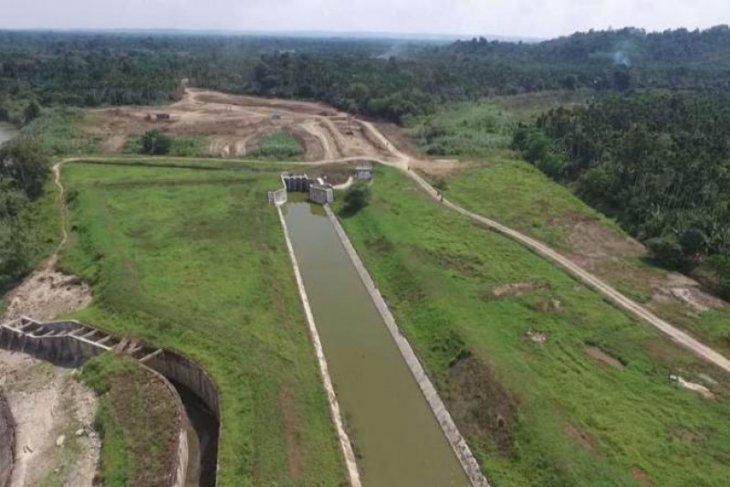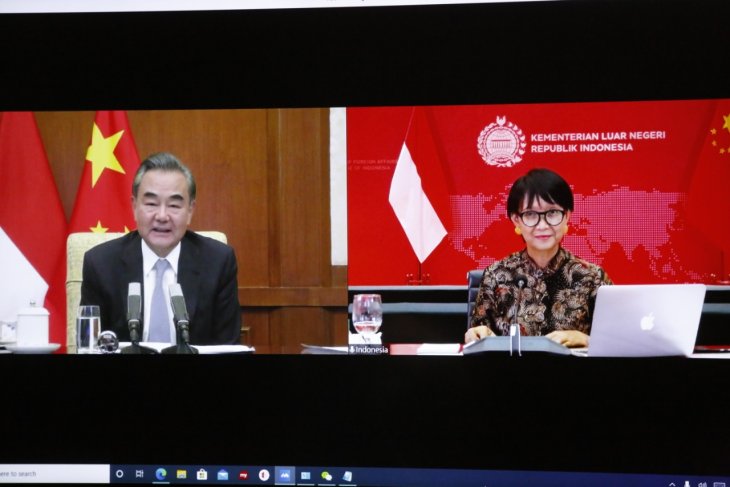Live Streaming
Program Highlight
Company Profile

Ani Hasanah
August
United States Recession Weakens Rupiah

The movement of the Rupiah at the spot market during the opening of the trade session is predicted to remain weak at level of IDR 14,650 on Monday, August 3, 2020. The weakening of the Rupiah is predicted to be affected by an external factor, which is the economic recession in the United States.
"Until July 31, there have been a number of countries hit by recession starting from Singapore, Hong Kong, South Korea, Australia, and then German and finally the United States. This possibility affects our Rupiah which will open weak next week," said the Director of TRFX Garuda Berjangka Ibrahim on Friday, July 31, 2020.
Ibrahim said that the United States recession raises concerns over the possible increase of unemployment in the country, which may strengthen the US Dolar index. In such condition, most foreign currencies face uncertainty.
Moreover, the United States controls 20 percent of the global economy, for Indonesia, the United States recession presents a major drawback because the United States is Indonesia's main export destination other than China.
Meanwhile, the internal factor that hampers the Rupiah movement is the extension of the Large-Scale Social Restriction ("PSBB") transition period imposed by the Jakarta Government. "If it is extended until August, it will be dangerous. If the PSBB transition period continues, Indonesia's Gross Domestic Product will be negative in the third quarter,"
The extension of PSBB transition period, according to Ibrahim, will raise apathy in the market. Ibrahim added that there is a possibility for the Rupiah exchange rate against the US Dolar will decrease sharply to IDR 15,000. (tempo.co)
August

Jakarta's Istiqlal Mosque to Distribute 7,500 Qurban meat packages in this year's Islamic Feast of the Sacrifice, Eid al-Adha.
The total of sacrificial animals received by the mosque is 35, consisting of 20 cows and 15 goats.
"We distribute the meat in three ways," said Istiqlal spokesperson Nur Hayin Mudror on Saturday, August 1.
First, the mosque management to send the live animals, comprising three cows and four goats, to a university in Ciputat, South Tangerang.
The other 17 cows and 11 goats will be slaughtered at Istiqlal and that the meat will be distributed to 113 institutions and foundations in Jakarta. Each of them will get 25 kilograms of Qurbani meat.
"They'll hand it out to the people." Each package contains 1 kg of meat.
Istiqlal Mosque will also give 300 Qurbani meat packages to the mosque staff and workers.
The number of sacrificial animals this year is smaller than last year of 26 cows and 19 goats. (tempo.co)
August

The Public Works and Public Housing Ministry develops irrigation system as part of the National Strategic Projects (PSN). ANTARA/HO-PUPR Ministry/sh
The Public Works and Public Housing (PUPR) Ministry has developed seven irrigation systems as part of the National Strategic Projects (PSN) to support economic recovery amid the COVID-19 pandemic.
PUPR Minister Basuki Hadimuljono remarked that the ministry had developed several dams in some regions throughout Indonesia and additionally built irrigation systems to drive productivity in agricultural centers.
"The construction of dams has been followed by the development of irrigation systems. Hence, the dams, built at a high cost, could be beneficial by supplying water to the farmers' paddy fields," Hadimuljono noted in a statement in Jakarta on Friday.
The ministry has set a target to build 500 thousand hectares of irrigation network and conduct rehabilitation of 2.5 million hectares of irrigation network during the period from 2020 to 2024 to boost the country's food and water resilience.
The target would support the National Medium-Term Development Plan for 2020-2024 to improve water adequacy to support national economic growth.
Development of the seven irrigation networks had been stipulated in Presidential Regulation No. 56 of 2018 on accelerating the implementation of PSN.
Two irrigation projects completed were the irrigation area (DI) Umpu System in Lampung that served an area of 7,500 hectares and the 86-km DI Leuwigoong that would distribute water to 5,313 hectares of potential area.
The five other irrigation networks still under construction are DI Jambo Aye Kanan in North and East Aceh districts, Aceh; DI Lhok Guci in West Aceh District, Aceh; DI Lematang in Pagaralam City, South Sumatra; DI Gumbasa in Sigi District and Palu City, Central Sulawesi; and DI Baliase in East Luwu District, South Sulawesi. (ANTARA)
August

Foreign Minister Retno Marsudi (right) held a virtual bilateral meeting with her Chinese counterpart, Wang Yi (left), on Thursday (July 30, 2020). (ANTARA/Foreign Minister Handout)
Expressing concern over the escalating tensions in the South China Sea, Indonesia has urged China to abide by international laws, including the United Nations Convention for the Law of the Sea (UNCLOS), in settling disputes.
During a virtual bilateral meeting on Thursday with her Chinese counterpart, Wang Yi, Indonesian Foreign Affairs Minister Retno Marsudi said there is a need for China, as a signatory to the Treaty of Amity and Cooperation, to abide by the the code of conduct while trying to resolve disputes related to the South China Sea with Southeast Asian countries.
"The Treaty of Amity and Cooperation (TAC) has been accessioned by many countries, including China, the United States, India, Australia, Japan, and South Korea. It is the obligation of those countries that have accessioned (to the TAC) to abide by its principles," Marsudi said in a media briefing.
The Foreign Minister stressed that dialogue is the best way to resolve conflicts and highlighted the consistent principle upheld by Indonesia in addressing the struggle for territory and power in the South China Sea: that of respecting international laws.
Indonesia believes that peace and stability in the South China Sea region can only be maintained if all countries respect and implement all relevant international laws, including the 1982 UNCLOS.
"I invite all parties to continue to prioritize cooperation and collaboration, rather than adverse rivalry," said Retno.
The situation in the South China Sea recently escalated again, with the US sending two aircraft carriers into the contested waters.
In a statement released on July 17, 2020, the US Navy stated that USS Nimitz and USS Ronald Reagan were operating in the South China Sea to strengthen US commitments to a free and open Indo-Pacific.
The presence of the two US aircraft carriers in the waters was not in response to political or global issues, rather, it was in connection to souring relations between the US and China over a number of issues ranging from the COVID-19 outbreak to the situation in Hong Kong, according to the statement.
A number of countries in the region, namely Brunei Darussalam, Malaysia, the Philippines, and Vietnam have opposed China's claims on around 90 percent of the South China Sea waters. The disputed area serves as a trade channel, and registers nearly US$3 trillion (equivalent to Rp44,264 trillion) in goods traffic per year.
China held military exercises in the contested waters earlier in July, 2020, which drew censure from Vietnam and the Philippines.Meanwhile, in a rare move, the US sent the two aircraft carriers into the South China Sea for what it referred to as “preliminary exercise” . (ANTARA)

